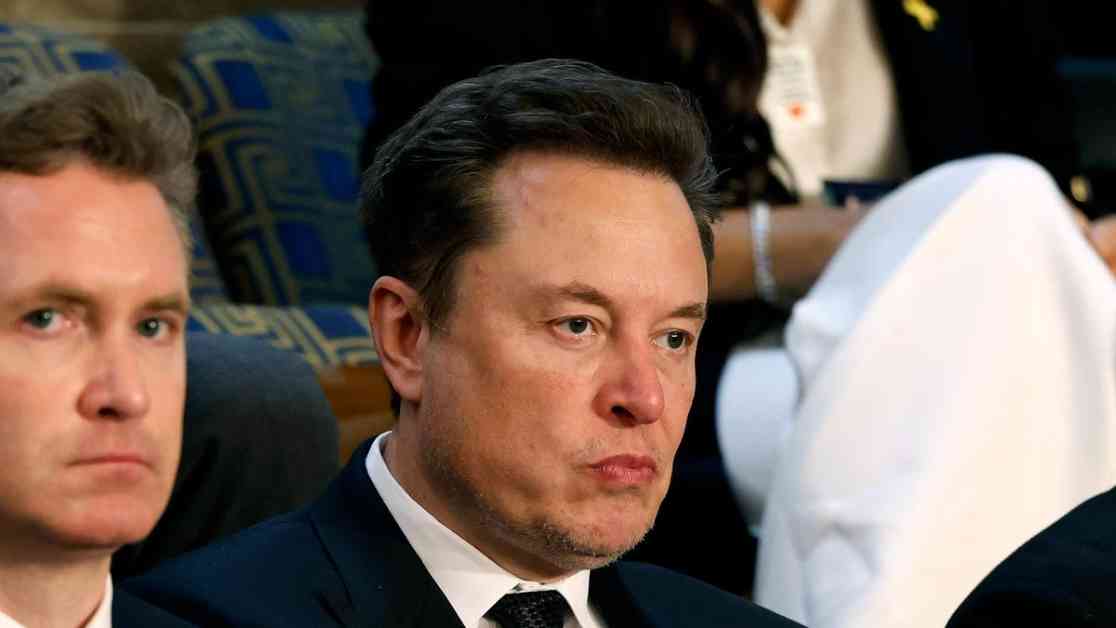Elon Musk’s Legal Battles: Potential Bias in Texas Cases
Elon Musk, the controversial CEO of Tesla, has been making headlines not just for his company’s financial struggles but also for his legal battles with various entities. These lawsuits have raised concerns about potential bias in the cases, particularly due to the involvement of a Texas judge who owns Tesla stock.
Challenges Faced by Musk and Tesla
In recent times, Tesla has faced challenges in terms of declining profits and a sales slump. Musk’s unconventional behavior on social media and controversial statements have also drawn criticism. Amidst all this, Musk has been engaged in legal battles with companies and organizations that have taken issue with his actions.
One such case involves Musk’s acquisition of Twitter and the subsequent transformation of the platform into a space for far-right hate speech. Advertisers, understandably, pulled their ads from the platform due to the offensive content. Media watchdogs highlighted the rise in antisemitic and pro-Nazi content on Twitter under Musk’s ownership.
Musk’s response to the advertisers’ actions was confrontational, with him suing them for leaving the platform and also targeting Media Matters for its report on antisemitism. While these lawsuits may seem frivolous to some, Musk has found a favorable ally in the form of a Texas judge.
The Role of Justice Reed O’Connor
Justice Reed O’Connor, a Texas judge known for his conservative leanings, has been assigned to Musk’s lawsuits. O’Connor’s past rulings have shown a tendency to align with Republican interests, making him a potentially friendly face for Musk in the legal battles.
In addition to his partisan affiliations, O’Connor’s financial ties to Tesla have raised concerns about potential bias in the cases. Public records indicate that O’Connor owns between $15,001 and $50,000 in Tesla stock, a fact that has not resulted in his recusal from the cases.
Despite the clear conflict of interest posed by O’Connor’s ownership of Tesla stock, he has been allowed to preside over Musk’s lawsuits. The lack of transparency regarding O’Connor’s financial disclosures and his refusal to address the issue have only fueled suspicions of bias in the cases.
Ethical Implications and Judicial Integrity
The ethical implications of a judge presiding over cases involving a company in which they hold stock are significant. The potential for bias, whether real or perceived, can undermine the integrity of the judicial process and erode public trust in the legal system.
Legal experts, such as Hofstra University Law School Professor James Sample, have emphasized the importance of impartiality in judicial proceedings. Sample contends that even the appearance of bias should be enough to warrant a judge’s recusal from cases where their financial interests are involved.
The lack of stringent regulations regarding judges’ financial holdings in individual companies raises questions about the need for stricter ethical guidelines. As highlighted by Sample, the bar for ethical behavior expected from federal judges should be higher to maintain the credibility of the judiciary.
Conclusion
The legal battles involving Elon Musk and Tesla have shed light on the potential for bias in judicial proceedings. The involvement of a Texas judge who owns Tesla stock has raised concerns about the fairness of the cases and the integrity of the legal system.
As the lawsuits continue to unfold, the spotlight remains on Justice Reed O’Connor and his handling of the cases involving Musk. The need for transparency, ethical conduct, and impartiality in the judiciary is paramount to uphold the principles of justice and ensure a fair legal process for all parties involved.










